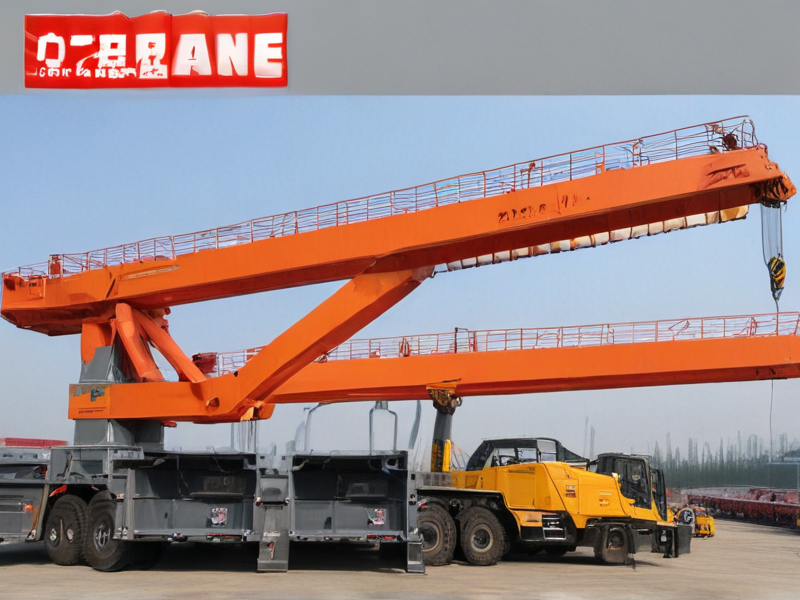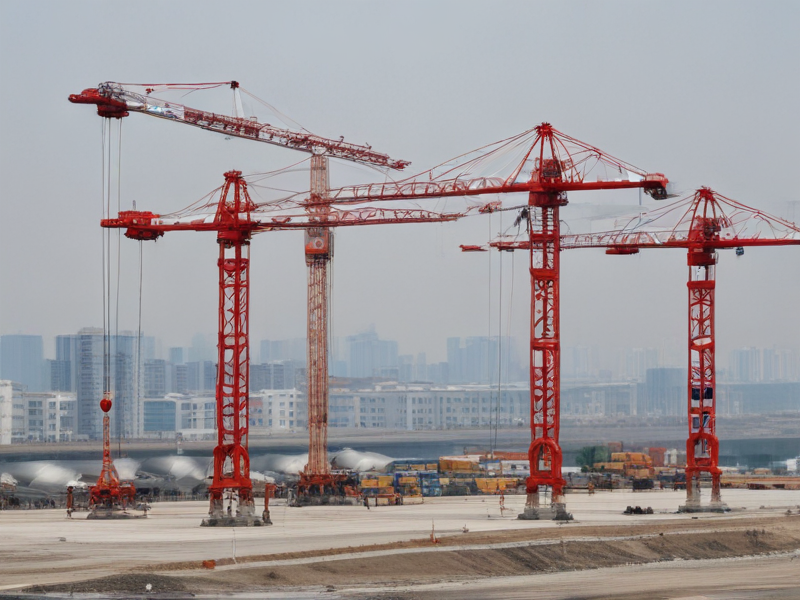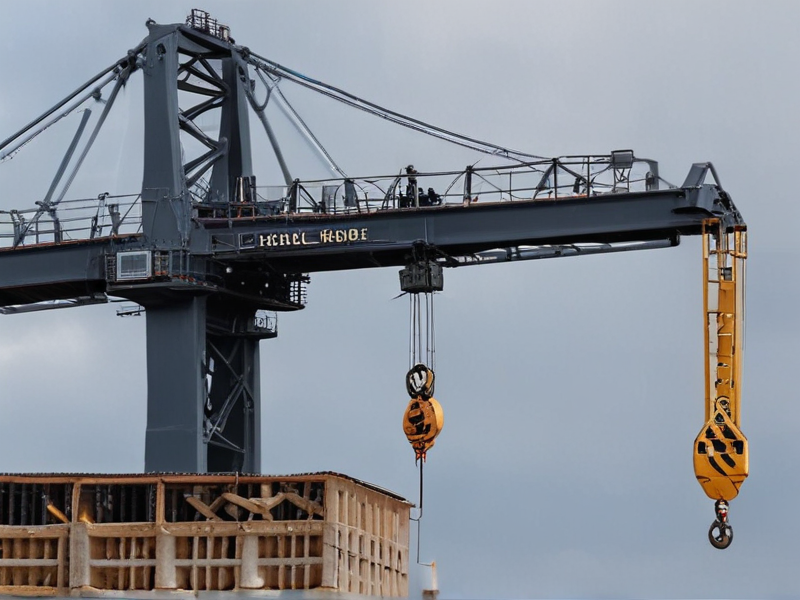Top 10 crane company in China introduce,list main products and website if have
Certainly! Here are the top 10 crane companies in China, along with a brief introduction of their main products and website information.
1. Xuzhou Construction Machinery Group (XCMG)
– Products: Mobile cranes, tower cranes, lattice cranes.
– Website: [www.xcmg.com](http://www.xcmg.com)
2. Zoomlion Heavy Industry Science & Technology Co., Ltd.
– Products: Truck cranes, crawler cranes, tower cranes.
– Website: [en.zoomlion.com](http://en.zoomlion.com)
3. Sany Group
– Products: Crawler cranes, truck cranes, all-terrain cranes.
– Website: [www.sanyglobal.com](http://www.sanyglobal.com)
4. Fangyuan Group Co., Ltd.
– Products: Tower cranes, construction hoists, concrete pumps.
– Website: [www.fangyuangroup.com.cn](http://www.fangyuangroup.com.cn)
5. Liebherr Machinery (Dalian) Co., Ltd.
– Products: Heavy-duty mobile cranes, crawler cranes, tower cranes.
– Website: [www.liebherr.com](http://www.liebherr.com)
6. Manitowoc Cranes (China) Co., Ltd.
– Products: Mobile cranes, boom cranes, overhead cranes.
– Website: [www.manitowoc.com](http://www.manitowoc.com)
7. Shandong Huaxia Group Co., Ltd.
– Products: Tower cranes, construction elevators.
– Website: [www.huaxiacrane.com](http://www.huaxiacrane.com)
8. Shandong Dahan Construction Machinery Co., Ltd.
– Products: Tower cranes, construction hoists.
– Website: [www.chinatowercrane.com](http://www.chinatowercrane.com)
9. China State Construction Engineering Corporation (CSCEC)
– Products: Tower cranes, stationary cranes.
– Website: [www.cscec.com](http://www.cscec.com)
10. Henan Weihua Heavy Machinery Co., Ltd.
– Products: Overhead cranes, gantry cranes, electric hoists.

How to find and select check reliable crane company in China
Finding a reliable crane company in China requires careful consideration and research. Here are some steps to help you select a trustworthy provider:
1. Research: Start with an online search for crane companies in China. Use business directories like Alibaba, Made-in-China, and Global Sources.
2. Verify Credentials: Check if the company is registered and has the necessary certifications, such as CE, ISO, and SGS. Reliable companies usually display these on their websites.
3. Read Reviews: Look for customer reviews and testimonials on forums, social media, and business directories. Pay attention to feedback about product quality, service, and delivery.
4. Check Experience: Prefer companies with several years of experience in the industry. Established companies are more likely to provide reliable products and services.
5. Inspect Product Range: A good crane company should offer a variety of cranes (tower cranes, mobile cranes, overhead cranes, etc.) to meet different needs.
6. Quality Assurance: Inquire about their quality control processes. Reliable companies conduct rigorous testing and adhere to international standards.
7. Ask for References: Request contact information of past clients. Speaking directly with previous customers can provide insights into the company’s reliability.
8. Compare Quotes: Get detailed quotes from multiple companies. Compare not just on price, but also on what’s included (warranty, service, spare parts).
9. Visit if Possible: If feasible, visit the factory to inspect the manufacturing process and meet the management team.
10. Seek Local Help: Engage a local agent or consultant to conduct due diligence. They can provide insights and facilitate communication.
By following these steps, you can more confidently select a reliable crane company in China, ensuring you receive quality products and services.
Background Research for crane company in China, use qcc.com archive.org importyeti.com
Conducting background research on a crane company in China using qcc.com, archive.org, and importyeti.com provides a comprehensive understanding of its business operations, financial health, and market activities.
qcc.com:
Qcc.com is a valuable resource for obtaining detailed information about Chinese companies, including their registration details, financial statements, legal risks, and corporate structure. By searching for the crane company on qcc.com, you can retrieve its business registration number, the date of establishment, registered capital, and key management personnel. The platform also provides information regarding the company’s shareholders, subsidiaries, and major changes over time. This data is crucial for understanding the corporate governance and financial stability of the crane company.
archive.org:
Archive.org, also known as the Wayback Machine, is useful for accessing historical web pages of the crane company. By entering the company’s website URL into archive.org, you can view past versions of the site, which may reveal changes in product offerings, corporate announcements, and historical marketing strategies. This historical data can help in identifying the company’s growth trajectory, adaptation to market trends, and any significant rebranding or strategy shifts over time.
importyeti.com:
ImportYeti.com specializes in tracking the import and export activities of companies by leveraging bill of lading data. By analyzing the crane company’s import and export records on ImportYeti, you can identify its key trading partners, the volume of goods traded, and the nature of products handled. This information is crucial for assessing the company’s supply chain, market reach, and global trade footprint. You can also identify patterns in international partnerships and shipments that highlight the company’s market position and strategic alliances.
Using these three platforms provides a well-rounded view of a crane company’s operations, financial health, historical evolution, and market activities. This multi-faceted approach ensures a thorough understanding of the company’s current standing and future prospects in the industry.

Price Cost Research for crane company in China, use temu.com and 1688.com
Conducting market research for crane prices in China involves using online marketplaces like Temu.com and 1688.com. Here’s a concise overview:
Temu.com
Temu.com is an international e-commerce platform focusing mainly on consumer products rather than industrial machinery like cranes. Therefore, it may not be the most reliable source for detailed price information on cranes. Initial searches for “crane” yield mostly small-scale construction equipment or crane accessories, with prices ranging from USD 100 to USD 1,500 for items like mini cranes or parts.
1688.com
1688.com, a subsidiary of Alibaba Group, is widely considered the go-to platform for sourcing industrial products directly from Chinese manufacturers.
#### Price Range:
Upon searching for “tower crane” and “mobile crane” on 1688.com:
– Tower Cranes: Prices start from approximately CNY 500,000 (USD 76,000) for smaller models and can go up to several million CNY for large-scale units.
– Mobile Cranes: Smaller models like the 8-ton mobile cranes start at around CNY 100,000 (USD 15,000) and can range to over a million CNY for higher capacity cranes.
#### Factors Influencing Price:
1. Capacity: Higher lifting capacity typically correlates with higher prices.
2. Brand: Renowned brands tend to be more expensive but may offer better durability and service support.
3. Features: Additional features such as advanced safety systems or greater mobility influence the price.
4. Bulk Purchase: Buying in bulk often results in discounted prices.
Conclusion
For industrial crane procurement, 1688.com provides a broader and more relevant range of options compared to Temu.com. Tower cranes generally range from USD 76,000 to several million USD, while mobile cranes range roughly from USD 15,000 to over a million USD, depending on specifications and capacity.
Compare China and Other crane company: Products Quality and Price,Visible and Hidden Costs
When comparing Chinese crane companies to other global crane manufacturers, several factors come into play: product quality, pricing, and both visible and hidden costs.
Product Quality:
Chinese crane companies have significantly improved their quality over the years, investing in better technology and manufacturing processes. However, top-tier Western and Japanese companies like Liebherr, Tadano, and Manitowoc still generally lead in terms of advanced engineering, durability, and overall performance. Brand reputation and long-standing experience contribute to their higher quality standards.
Pricing:
Chinese cranes are generally more cost-effective upfront, offering a more budget-friendly option for buyers. Western and Japanese cranes, on the other hand, come with much higher initial costs due to their advanced features, reliability, and brand prestige. This often results in lower volume discounts and higher upfront capital expenditures.
Visible and Hidden Costs:
– Visible Costs: The visible costs include the purchase price, shipping fees, and any applicable taxes or tariffs. Chinese cranes have a competitive edge in this aspect due to their lower price tags. Western and Japanese cranes typically incur higher upfront costs.
– Hidden Costs: Hidden costs encompass operating and maintenance expenses, downtime, and availability of spare parts. Chinese cranes might have higher hidden costs due to potentially more frequent maintenance needs and shorter service life. Spare parts for Chinese machinery might also be harder to source, leading to longer downtimes. Conversely, cranes from Western and Japanese manufacturers often have longer intervals between maintenance, better global support networks, and readily available spare parts, thereby reducing both short-term and long-term hidden costs.
In summary, while Chinese cranes are more affordable initially, they may incur higher operational and maintenance costs over time. Western and Japanese cranes, though more expensive upfront, generally promise better quality and lower hidden costs, making them a potentially more cost-effective investment in the long run.
Custom Private Labeling and Branding Opportunities with Chinese crane company
Partnering with a Chinese crane company for custom private labeling and branding presents promising opportunities for businesses looking to expand their market reach and offer diversified products. Here’s a concise overview of the potential benefits and strategies:
Advantages:
1. Cost-Effectiveness: Chinese manufacturers often offer competitive pricing due to lower labor and production costs. This allows you to offer high-quality cranes at a reduced price point, increasing your market competitiveness.
2. Advanced Technology: Many Chinese crane companies utilize advanced technology and adhere to international quality standards, ensuring reliable and efficient products.
3. Customization: Chinese companies are typically flexible with customization, allowing you to tailor crane specifications, aesthetics, and functionalities to meet specific market needs.
4. Large Production Capacity: With substantial production capabilities, these companies can meet large volume orders, ensuring timely delivery and consistent supply.
Strategies:
1. Exclusive Partnerships: Establish exclusive agreements to distribute uniquely branded cranes in your target markets, thereby differentiating your offerings from competitors.
2. Collaborative Design Development: Work closely with the Chinese manufacturer’s design team to create cranes that align with your brand identity and cater to the specific demands of your customers.
3. Quality Assurance: Implement rigorous quality control measures and regular inspections to maintain high product standards and build customer trust.
4. Branding and Packaging: Invest in unique branding and packaging solutions that reflect your company’s values and aesthetics, providing a compelling brand experience for your clients.
Marketing:
– Localized Advertising: Launch marketing campaigns tailored to the cultural and business nuances of different regions.
– Exhibitions and Trade Shows: Participate in industry-specific events to showcase your custom-branded cranes and network with potential buyers.
– Online Platforms: Leverage e-commerce and social media platforms to enhance brand visibility and reach a broader audience.
In summary, leveraging private labeling and branding opportunities with a Chinese crane manufacturer can significantly enhance your product line and market presence, offering cost-effective, high-quality, and tailored solutions to meet diverse customer needs.
Tips for Procurement and Considerations when Purchasing from crane company
When procuring from a crane company, several key considerations and tips can optimize your purchase:
1. Evaluate Needs:
– Capacity & Specifications: Ensure the crane meets your project’s lifting capacity, height, and reach requirements.
– Type: Determine if you need a mobile, tower, or overhead crane based on your operational demands.
2. Supplier Reputation:
– Track Record: Research the company’s history and customer reviews.
– Certifications: Verify industry certifications and compliance with safety standards.
3. Cost Analysis:
– Initial vs. Lifetime Costs: Consider the purchase price, maintenance, and operational costs. A cheaper upfront cost may lead to higher long-term expenses.
– Financing Options: Explore financing plans or leasing opportunities to manage cash flow efficiently.
4. Quality & Safety:
– Inspection: Have an experienced professional inspect used cranes for wear and tear if buying second-hand.
– Warranty: Ensure a comprehensive warranty covers key components and labor for repairs.
5. Support Services:
– Maintenance & Repairs: Confirm the availability of local service centers and the scope of offered support services.
– Training: Check if the company provides operator training to ensure safe and proficient use.
6. Delivery and Installation:
– Logistics: Factor in delivery timelines and installation requirements.
– Site Readiness: Ensure your site is prepared for the crane’s arrival and setup.
7. Regulatory Compliance:
– Permits: Verify the need for any permits or inspections as per local regulations.
– Environmental Impact: Consider the environmental footprint and select eco-friendly models, if available.
By meticulously evaluating these aspects, you ensure that your investment in a crane is sound, aligning with operational goals, safety standards, and budgetary constraints.

FAQs on Sourcing and Manufacturing from crane company in China
Sure, here are some FAQs on sourcing and manufacturing from a crane company in China, streamlined to fit within 300 words:
1. Why Source Cranes from China?
Chinese manufacturers offer cost-effective solutions without compromising on quality. They utilize advanced technology and efficient production processes to deliver high-quality cranes at competitive prices.
2. How Do I Choose a Reliable Crane Manufacturer in China?
Research manufacturers thoroughly:
– Verify certifications like ISO9001.
– Check for compliance with international standards.
– Request client references and case studies.
– Visit their manufacturing facility if possible.
3. What Types of Cranes Can I Source from China?
Chinese manufacturers typically produce:
– Overhead Cranes
– Gantry Cranes
– Jib Cranes
– Tower Cranes
– Mobile Cranes
4. What Are the Lead Times for Manufacturing?
Lead times vary depending on the crane type and customization requirements. Standard models may take 4-8 weeks, while custom solutions could take up to 12-16 weeks.
5. Can I Customize My Crane Order?
Yes, customization is available. Provide detailed specifications and requests during the initial discussions to ensure your requirements are met.
6. What Quality Assurance Measures Are in Place?
Chinese manufacturers typically implement rigorous quality control processes including:
– Material inspections
– In-process quality checks
– Final product testing
Ensure they adhere to international standards such as CE, ANSI, or ASME.
7. How Is Shipping Handled?
Manufacturers usually handle logistics and shipping arrangements. They offer various shipping methods like sea freight or air freight, depending on urgency and budget.
8. What About After-Sales Support and Warranty?
Most reputable manufacturers offer warranties ranging from 12 months to 2 years. After-sales support includes remote troubleshooting, on-site service, and spare parts supply.
9. How Do I Manage Communication and Language Barriers?
Opt for manufacturers with a proficient English-speaking staff. Utilize digital communication tools and schedule regular updates to ensure smooth communication.
10. What Are the Payment Terms?
Commonly, manufacturers require a 30% deposit with the balance paid before shipment. Always confirm payment terms upfront.
This concise FAQ guide should help in making informed decisions while sourcing cranes from China.

